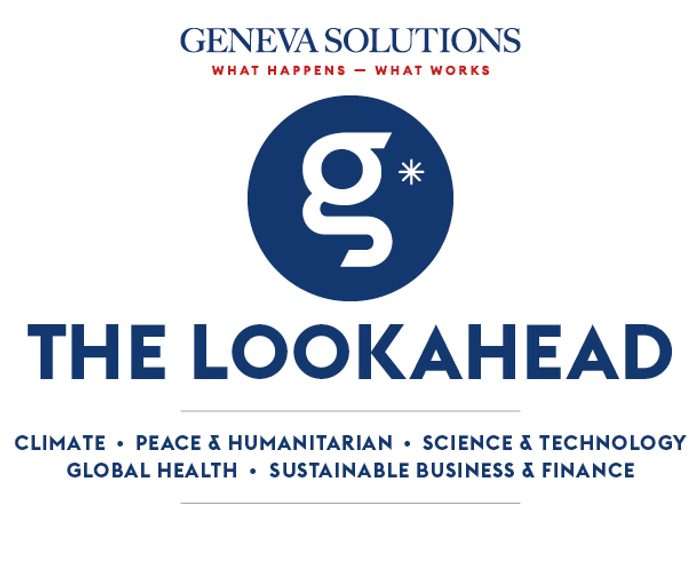Good morning, this is Michelle. The United Nations is what its 193 members want it to be. As far-right populists surge ahead in western elections and increasingly gain power, they may want to fashion the global body to serve their own vision.
On the agenda this week, states hold meetings on a stalled 50-year-old treaty meant to halt the spread of nuclear arms. Plus, the UN climate body convenes in Bulgaria to sort out the technical details of its highly-awaited reports. |

|

Italian Prime Minister Giorgia Meloni addresses the UN General Assembly at in New York on 20 September 2023. (Keystone/AFP/Leonardo Munoz)
|
|
Should the UN be worried about the rise of the far right?
The far right and right-wing populists have quickly gained ground in the west, securing historic wins in recent elections. With geopolitical tensions at an all-time high, conflicts and humanitarian crises escalating, and an international system struggling to cope, what does it mean for the United Nations and multilateralism if nationalist right-wingers are calling the shots?
Geneva Solutions
|
|
|
☢️ NUKE PRE-TALKS.
States are due to continue a preparatory gathering this week aimed at preventing the spread of nuclear weapons. The discussions are to set the stage for the next Review Conference of the Treaty on the Non-Proliferation of Nuclear Weapons (NPT) in 2026 after the last iteration in 2022 ended with Russia blocking the adoption of a joint declaration, which included criticism of Moscow’s military takeover of the Zaporizhzhia nuclear power plant in Ukraine.
|
|
What’s it about?
Since the treaty entered into effect in 1970, 190 countries have joined, including five nuclear-weapons states: the US, the UK, Russia, France and China. Every five years, they assess progress and agree on how to work towards nuclear disarmament, preventing the spread of nuclear weapons to other states and peaceful uses of nuclear energy.
|
|
Wrong direction.
With all nuclear powers ramping up spending to modernise their arsenals, achieving disarmament soon seems unlikely. But US ambassador Adam Scheinman doesn’t think so, as he told the Bulletin of the Atomic Scientists in an interview last week ahead of the meeting.
|
|
Outliers.
India, Israel and Pakistan, which are believed to also possess nuclear arms, are against the agreement, while North Korea withdrew in 2003.
|
|
📖DRAFTING THE CLIMATE BIBLE.
Delegates from 195 countries and observers have been in Sofia since Saturday to decide how the Intergovernmental Panel for Climate Change will go about producing the world’s most authoritative reports on the matter over the next six years, an immense task that involves hundreds of scientists reviewing thousands of scientific studies.
The last edition found that humans have unequivocally mostly caused climate change and that some of the changes to Earth's systems can no longer be reversed.
|
|
What’s in it?
The UN climate body led by chair Jim Skea, an academic expert on sustainable energy, will be tasked with producing three main reports by 2028 on the science behind climate change, how to reduce greenhouse gas emissions and how countries can cope with unavoidable climate impacts. This follows previous cycles after deciding against a proposal to rather publish shorter reports faster to better influence policy.
|
|
Other thematic reports include climate and cities, and short-lived climate forcers (SLCFs) like methane, ozone and aerosols. These are compounds that don’t last as long as CO2 in the atmosphere but still have powerful heat-trapping capacities. A more controversial document is set to address carbon removal technologies and carbon capture, which rights groups have accused of serving as a lifeline to the fossil fuel industry.
The main findings will then be compiled into one synthesis report slated for 2029.
|
|
First things first.
Among the top issues on the agenda is establishing a timeline for the reports, which typically serve as crucial input for climate negotiations. The delegates are also planning to agree on an outline for the special reports on cities and SLCFs while leaving the last one to a meeting in October.
|
|
|
GS news is a new media project covering the world of international cooperation and development. Don’t hesitate to forward our newsletter!
Have a good day!
|

|
|
Avenue du Bouchet 2
1209 Genève
Suisse
|
|
|
|








